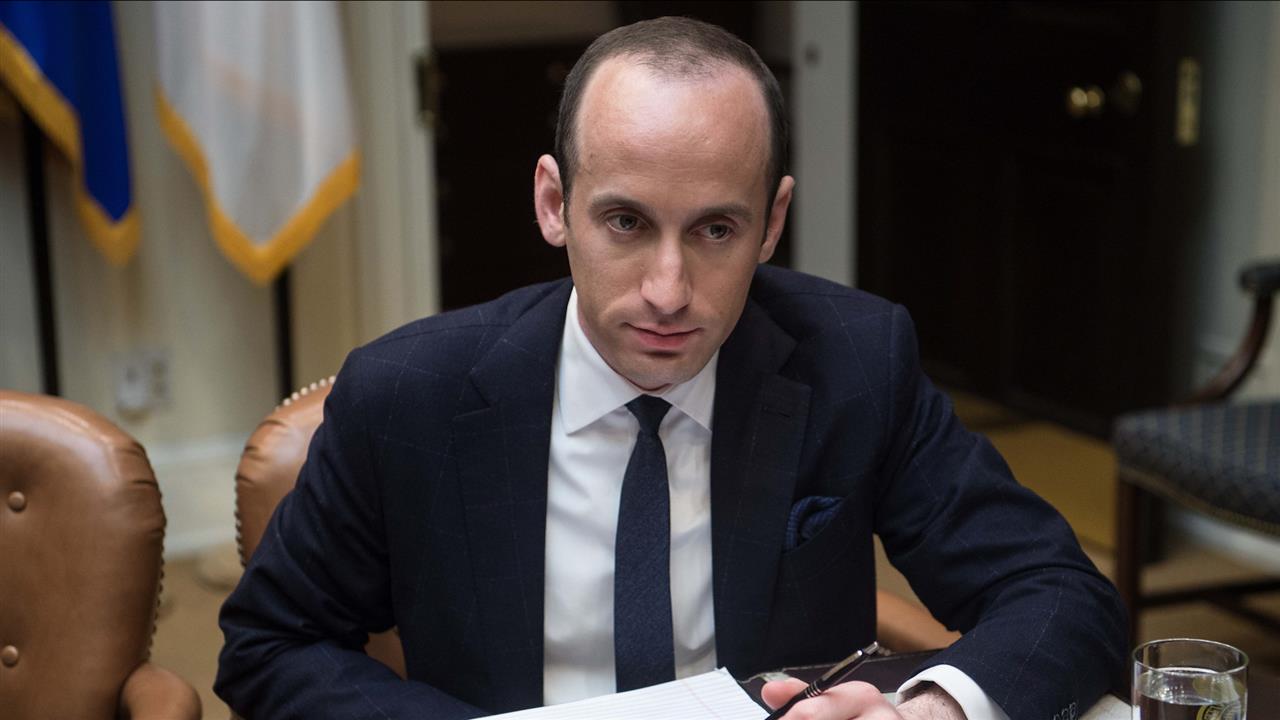


Trump's latest appointments signal a strict immigration policy will continue in his second term. Stephen Miller, a long-time advisor known for his hardline stance on immigration, has been named Deputy Chief of Policy and Tom Homan, a former acting director of ICE, will serve as Border Czar. Miller's influence could lead to major changes for H-1B visa holders, including higher salary requirements and longer processing times. This could have a significant impact on Indian citizens seeking employment in the U.S.
Miller's Influence on Trump's Immigration Policy
Stephen Miller, a long-time advisor to President Trump, has been named Deputy Chief of Policy. Miller is known for his hardline stance on immigration, and his influence is likely to lead to major changes in immigration policy.
One of the most significant changes that Miller could implement is an increase in salary requirements for H-1B visa holders. H-1B visas are granted to highly skilled foreign workers, and the current minimum salary requirement is $60,000 per year. Miller has proposed raising the minimum salary to $130,000 per year, which would make it much more difficult for foreign workers to obtain H-1B visas.
Miller could also implement changes to the processing time for H-1B visas. The current processing time is around six months, but Miller has proposed increasing the processing time to one year. This would make it much more difficult for foreign workers to obtain H-1B visas in a timely manner.
In addition to the changes to H-1B visas, Miller could also implement changes to other aspects of immigration policy. For example, he could propose reducing the number of refugees admitted to the United States each year, or he could propose building a wall along the border between the United States and Mexico.
Miller's influence on immigration policy is likely to have a significant impact on businesses and immigrants alike. Businesses that rely on foreign workers may have to pay higher salaries or wait longer to fill open positions. Immigrants may find it more difficult to obtain visas to work or live in the United States.
Top 5 FAQs on Miller's Immigration Policy
Miller could increase the salary requirements for H-1B visa holders, increase the processing time for H-1B visas, reduce the number of refugees admitted to the United States each year, or build a wall along the border between the United States and Mexico.
Miller's influence on immigration policy is likely to have a significant impact on businesses and immigrants alike. Businesses that rely on foreign workers may have to pay higher salaries or wait longer to fill open positions. Immigrants may find it more difficult to obtain visas to work or live in the United States.
The future of immigration policy under Trump's second term is uncertain. Miller's influence is likely to lead to major changes in immigration policy, but it is unclear what specific changes will be implemented.
Miller's immigration policy could potentially benefit businesses by making it more difficult for foreign workers to obtain visas. This could lead to higher wages for American workers. Miller's immigration policy could also potentially benefit the United States by reducing the number of illegal immigrants and refugees.
Miller's immigration policy could potentially harm businesses by making it more difficult to find qualified workers. This could lead to higher prices for goods and services. Miller's immigration policy could also potentially harm immigrants by making it more difficult for them to obtain visas to work or live in the United States.

In the 2025 municipal election in Conway, voters made the choice to stick with the current city leaders. Incumbents Amanda Butler, Beth Helms, and William Goldfinch were all re-elected to their positions, while challenger Tonya Robinson fell just short. Butler, who received the most votes, expressed surprise and gratitude, and said that the re-election of all three incumbents shows confidence in the current council.

The Haryana High Court has issued a third warrant for the arrest of self-styled godman Rampal, who is facing a murder charge. With pressure mounting on the police to take action, thousands of men, women, and children who were holding a protective ring around Rampal are now abandoning their position, claiming they were forced to stay there by the godman and his supporters. This walk out is seen as a victory for the police, who are worried about potential violence from Rampal's supporters and have cut off essential resources like water, power, and food to the ashram. Rampal, who has a history of missing court hearings, is now using ill health as a reason to avoid arrest.

At a state working committee meeting of the BJP in Uttar Pradesh, Deputy Chief Minister Keshav Prasad Maurya stressed on the significance of the party organization over the government. He highlighted the need for party workers to be respected and their dignity upheld. Maurya also addressed the recent electoral setbacks faced by the BJP and stated that the organization will always remain supreme.

Acclaimed poet and Aam Aadmi Party leader Kumar Vishwas has praised Dhirendra Shastri, a prominent leader of the Sanatan Dharma movement in Uttarakhand, for his efforts in bringing enlightenment and upliftment to the people. Vishwas highlighted Shastri's dedication to preserving the values of Sanatan Dharma and spreading its message across the state. This news highlights the significance of cultural and spiritual leaders in shaping the political landscape of India.

Congress leader Rahul Gandhi has accused the Indian Election Commission of not using its de-duplication software to identify duplicate and photo-similar entries in the electoral rolls during the 2022 annual Special Summary Revision. This comes after Gandhi claimed that 25 lakh votes were "stolen" in the 2024 Haryana Assembly elections, including 5.21 lakh duplicate voters. According to sources, the software has not been used since the 2022 SSR, despite repeated directives from the EC to identify and delete such entries.

The Madhya Pradesh High Court made a strong statement against religious terrorism, stating that no religion supports violence or terror. This came as the court denied bail to an Islamic State of Iraq and Syria (ISIS) suspect arrested by the National Investigating Agency (NIA). The court also noted that the suspect was an active member of a conspiracy to attack a defence entity, showing the dangerous nature of religious terrorism.

Congress leader Rahul Gandhi has accused the Election Commission of ignoring a crucial deduplication software that could have prevented the alleged "stolen" votes in the 2024 Haryana Assembly elections. The software, developed by the Centre for Development and Advanced Computing (CDAC), has not been used for the past two years, despite repeated directives from the EC to identify and delete duplicate entries in the electoral rolls. The software was last used in the 2023 Special Summary Revision, which led to a rare contraction in the total number of registered voters in the country. Gandhi's claims have raised questions about the EC's efforts to clean up the electoral rolls and the need for effective use of technology in the process.

During a Fox News interview, President Trump responded to concerns over pricing in America from a loyal Republican supporter. He blames Republicans for not addressing the issue effectively and calls out Democrats for lying about it. The anchor discussing the topic with Trump also notes how the recent election results should make Republicans re-examine this economic issue.

Zohran Mamdani, a 34-year-old Democrat, has been elected as the first Muslim mayor of New York City in over a century, beating out incumbent President Donald Trump's preferred candidate. In his first press conference, Mamdani promised to stand up against Trump's divisive policies and usher in a new era for the city. However, as he faces challenges ahead, many will be closely watching his actions and decisions as mayor.

BJP counters Congress leader Rahul Gandhi's claims of rampant vote theft in the upcoming Haryana assembly elections with a detailed rebuttal. The ruling party accuses Gandhi of resorting to a recycled narrative of "vote chori" to explain his party's electoral defeats, and highlights the Congress leader's own inconsistencies in using the same EVMs he alleges to be fraudulent. It also calls out his attempt to grab media attention rather than following due process. Meanwhile, the Congress is yet to respond to the BJP's rebuttal.